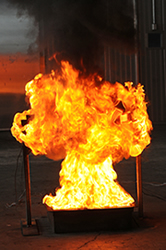 Last week, the U.S. Department of Homeland Security’s (DHS) Science and Technology Directorate awarded a SAFETY Act designation to Visual Defence USA, Inc. for its blast-resistant video system designed for use in mass transit vehicles. This marks the first time a product has received both a SAFETY Act designation and a SECURE certification.
Last week, the U.S. Department of Homeland Security’s (DHS) Science and Technology Directorate awarded a SAFETY Act designation to Visual Defence USA, Inc. for its blast-resistant video system designed for use in mass transit vehicles. This marks the first time a product has received both a SAFETY Act designation and a SECURE certification.
The Support Anti-terrorism by Fostering Effective Technologies (SAFETY) Act is designed to ensure that legal liability does not deter potential manufacturers or sellers of anti-terrorism technologies from developing, deploying, and commercializing potentially life-saving technologies, while also guaranteeing that a technology works as advertised and effectively supports a homeland security mission. Virtual Defence’s Blast Resistant Autonomous Video Equipment (BRAVE) camera achieved this designation because of the support it provides to investigators in the event of a mass-transit incident. Similar to the well-known “black box” recording devices found in airplanes, BRAVE cameras could be installed in trains, buses and subways.
In April 2011, BRAVE became the first technology to receive SECURE certification. This program promotes cooperative relationships between DHS and the private sector in developing products or services that meet homeland security needs in the context of a dynamic marketplace. Such a joint designation is just one example of successful public-private partnerships that are supporting the homeland security mission.
